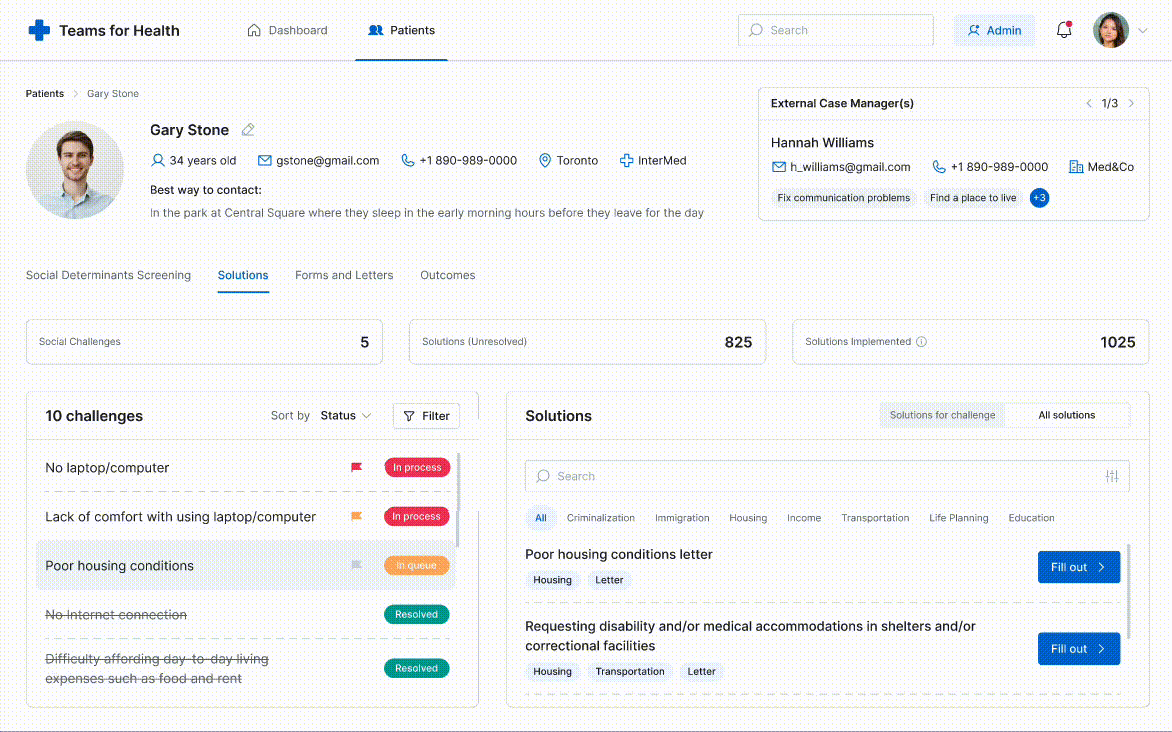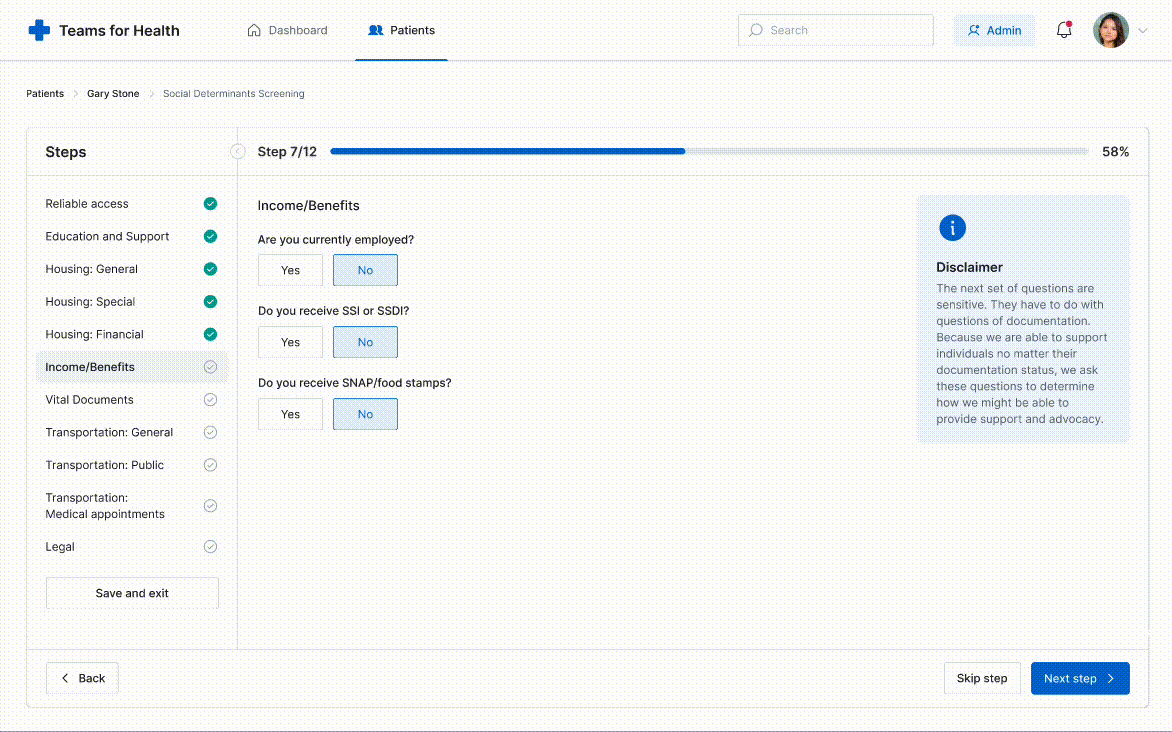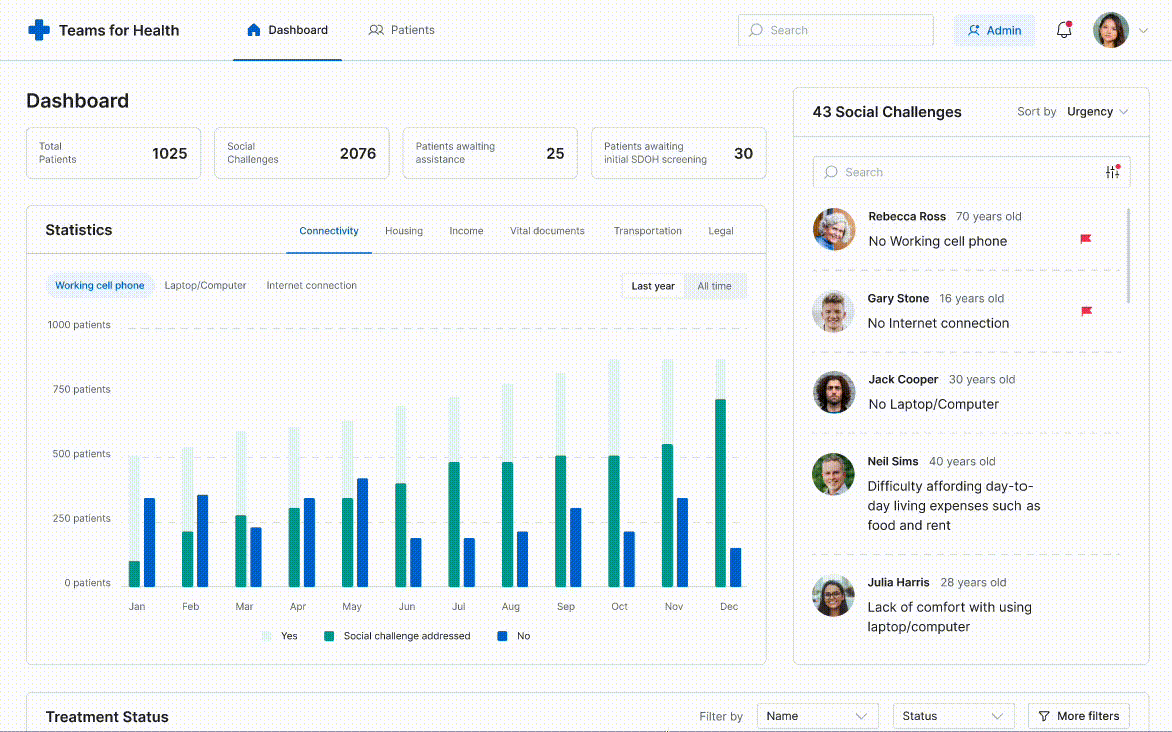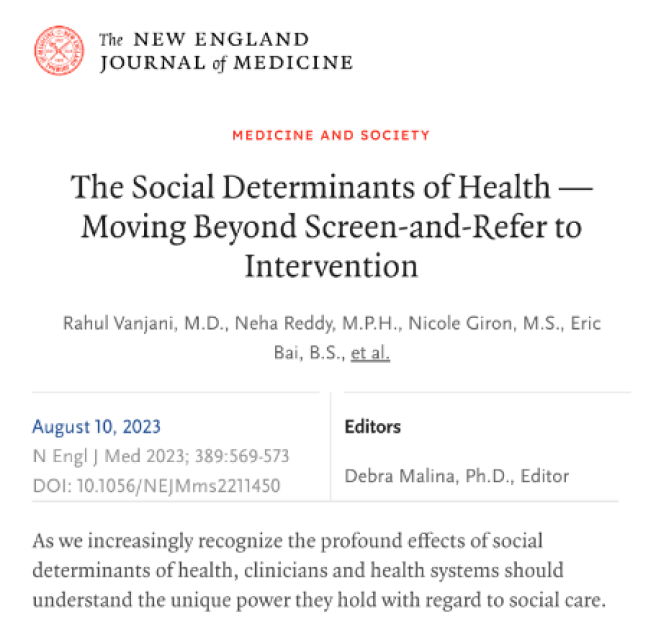Addressing social risk factors to improve overall patient health
Because healthcare involves more than medicine
Get in touch
Because healthcare involves more than medicine
Get in touch
Healthcare traditionally addresses social needs by making referrals to community organizations.
That’s not good enough.
Docs for Health partners with hospitals, clinics and payors to treat the social determinants of health. Our impact on a patient’s life is nearly 17x that of one of the most common drugs we use in medicine today.
Intervention is the key ingredient in our unique approach.




Are you a provider, health system, or government agency looking for a better way to address social determinants of health?
Get in touch to learn more about how we can help.